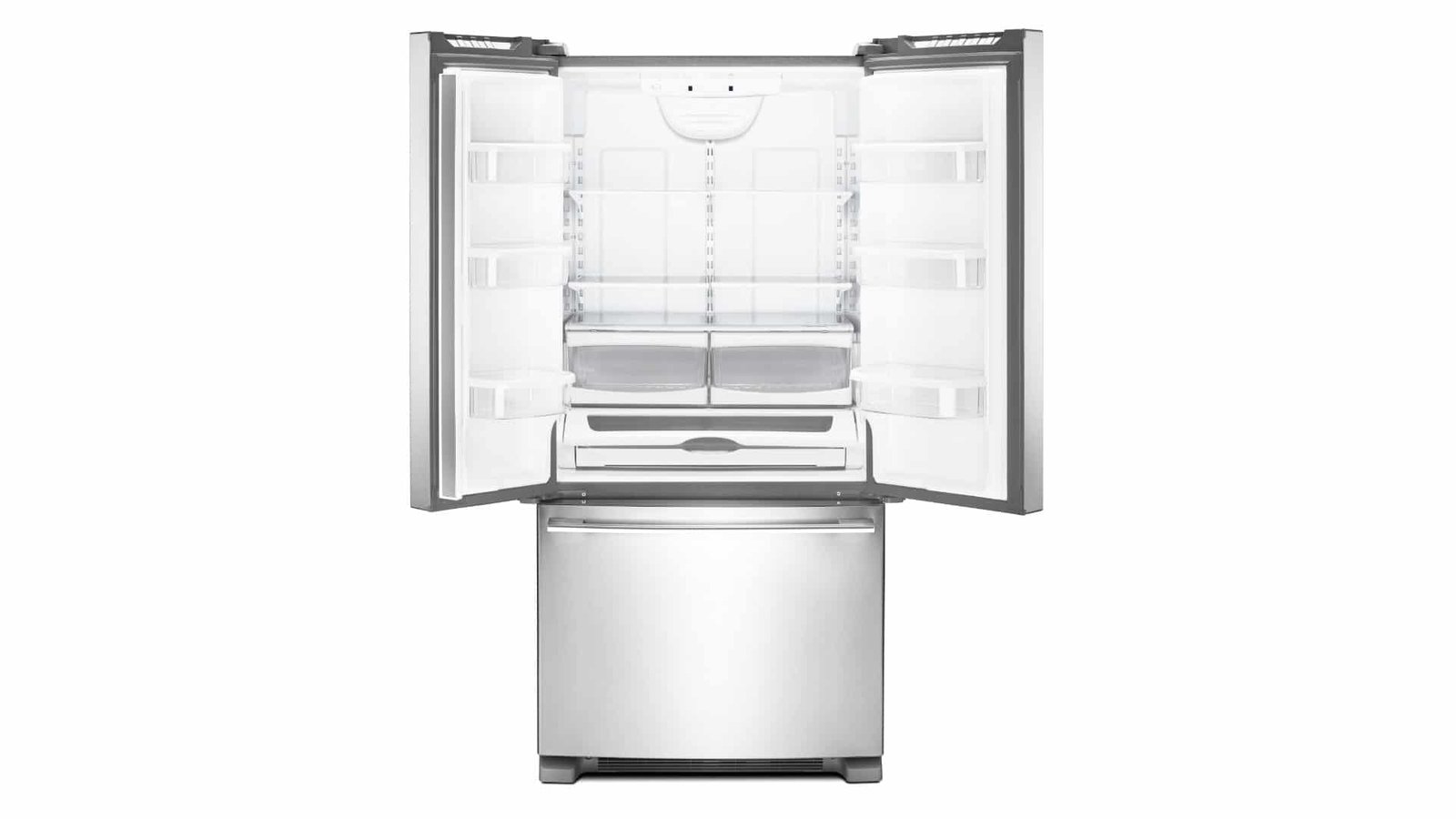When it comes to home appliances, refrigerators are among the most essential and constantly running items in our kitchens. At TheKitchenApplianceDad.com, we often receive questions about energy consumption and how to make more energy-efficient choices. Today, we’re diving deep into one of the most common questions: “How many watts does a refrigerator use?”
What Determines Refrigerator Wattage?
Refrigerator Size and Type:
The wattage of a refrigerator primarily depends on its size and type. A standard fridge typically uses between 100 to 250 watts, while larger models, especially those with additional features like ice makers and external water dispensers, can consume more energy.
Age and Efficiency:
Older models tend to be less energy-efficient compared to newer ones designed with better insulation and energy-saving technology. For instance, models manufactured before the 1990s can use over 700 watts, whereas modern energy-efficient models are designed to use much less.
Compressor:
The compressor, which maintains the refrigeration cycle, is the most significant energy-consuming part of a fridge. The compressor’s workload, and consequently its energy draw, can vary depending on how well the fridge is maintained, how often it’s opened, the ambient temperature, and the amount of food stored inside.

Average Wattage by Refrigerator Type
To give you a clearer picture, here are some average wattage ranges based on different types of refrigerators:
- Mini or Compact Refrigerators: Typically use between 50 and 65 watts, but can go up to 100 watts.
- Top-Freezer Refrigerators: Commonly use between 100 and 200 watts.
- Bottom-Freezer Refrigerators: Range between 100 and 250 watts.
- Side-by-Side Refrigerators: Can use between 200 and 300 watts.
- French Door Refrigerators: Generally consume between 200 and 300 watts.
Remember, these are just average figures. Specific models can vary, especially those with additional features.
Calculating Your Refrigerator’s Energy Usage
If you want to calculate the exact wattage and energy usage of your refrigerator, follow these steps:
- Locate the Energy Guide Label: Most refrigerators have an Energy Guide label that shows the annual electricity consumption in kilowatt-hours (kWh). This can give you a rough estimate of its wattage.
- Use a Watt Meter: For a more precise measurement, use a watt meter. This device can be plugged into your refrigerator, and it will display the exact amount of electricity it uses in watts.
- Check the Manual or Manufacturer’s Website: The user manual or the manufacturer’s website usually provides information about the appliance’s power specifications.
Tips for Reducing Refrigerator Energy Consumption
Reducing the energy consumption of your refrigerator not only helps lower utility bills but also extends the life of your appliance. Here are some effective tips:
- Set the Right Temperature: Keep your refrigerator at about 37-40°F and your freezer at 0°F. Setting it colder than necessary can significantly increase energy consumption.
- Keep It Full: A full refrigerator retains cold better than an empty one. However, don’t overpack as this can block air vents and make the compressor work harder.
- Check Door Seals: Make sure the door seals are airtight. If not, cold air will escape, causing your fridge to work harder to maintain the temperature.
- Position It Properly: Keep your refrigerator away from heat sources like ovens and direct sunlight. Also, ensure there’s enough space around it for good air circulation.
- Regular Maintenance: Clean the condenser coils regularly, as dirty coils make the refrigerator work harder and use more energy.
Key Takeaways
- Refrigerator wattage varies significantly based on size, type, age, and efficiency, ranging from as low as 50 watts to over 300 watts for domestic models.
- Energy Star-rated refrigerators are more energy-efficient and can help reduce household energy costs.
- Regular maintenance and proper usage can significantly decrease energy consumption.
- Using a watt meter can provide an accurate measurement of your refrigerator’s energy usage.
Understanding the energy consumption of your refrigerator can help you make informed decisions about usage and maintenance, leading to potential savings and a lesser environmental impact. At TheKitchenApplianceDad.com, we hope this detailed guide helps you optimize the efficiency of your refrigerator and possibly choose a better model when it’s time for an upgrade.


